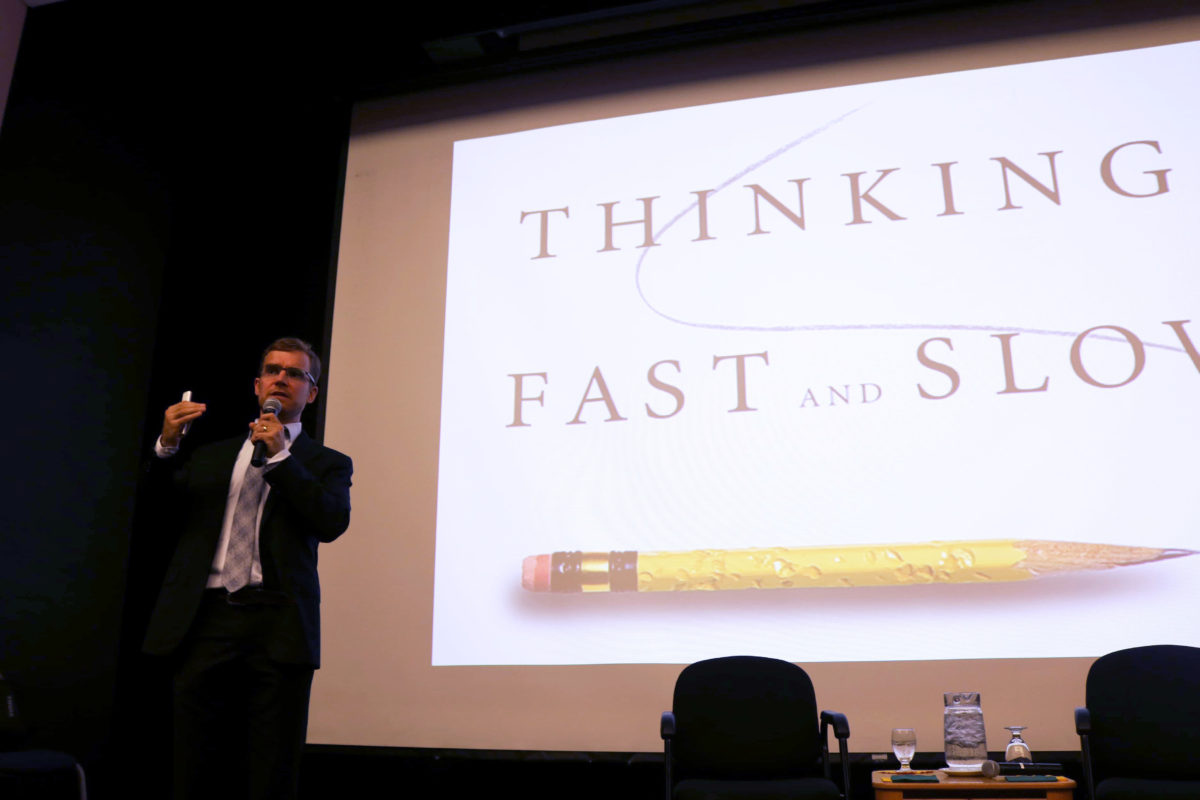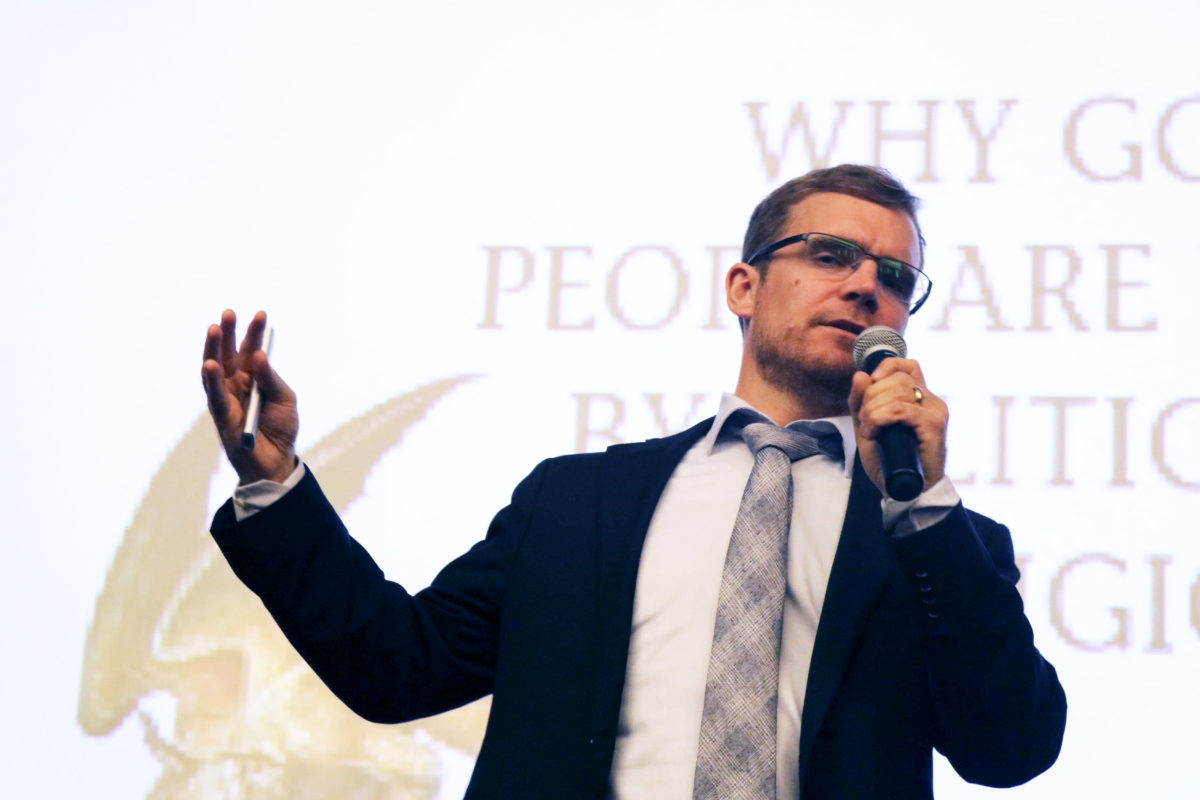If anything, we’re underestimating how partisan American politics has become in recent years, according to Christopher Cochrane.
Cochrane, a St. Thomas graduate now teaching at the University of Toronto, told an audience in Ted Daigle Auditorium on Oct. 9 that polls and social media monitoring indicate that people are increasingly drawn to the political poles of left and right.
“People often position themselves in the center of the political spectrum,” said the author of Left and Right: The Small World of Political Ideas. “No one is really at the center.”
Cochrane noted Americans have always been widely divided on cultural values, as the book Culture War by Morris P. Fiorina argues, but this was supressed during the Cold War. Because of the communist threat in the nuclear era, citizens pulled together. Without that threat, Republicans and Democrats are free to see the other as the enemy to their “American” value systems.
He said people are wired for political biases and that those political instincts affect our ability to problem solve and compromise.
“You get your marching orders from your tribe and you march,” he said. “We pretend we are constructing a rational moral idea.”

While voters on the left and right might see themselves as quite distinct, they have a “family resemblance,” he said.
Cochrane also said with the rise of social media, young people’s outlooks are increasingly shaped by wanting to fit into online social groups.
Still, he argued that the more informed someone is, the less likely they will be influenced by how individual media frame events.
While concluding that “American politics is divided and embittered like many other countries,” and that Canadian politics tends to follow American trends, he said we have not yet arrived at American extremes of bitterness and division.
As a STU alumnus, Cochrane also had some advice to pass on.
“Enjoy your time here, take seriously the chance to learn the things you have an opportunity to learn because you will never again be in a place like this. You won’t ever again have the opportunities you have here to think about the kind of questions you consider here.”

